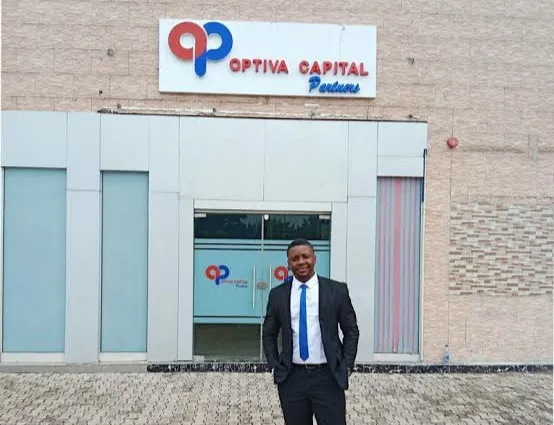20 Frequently Asked Optiva Capital Partners Interview Questions
Optiva Capital Partners, one of the top investment businesses in the business, is renowned for its demanding hiring procedures, thus it is imperative that applicants are well-prepared.
This article explores the fundamental elements that distinguish and present a challenge during an interview with Optiva Capital Partners, ranging from behavioral questions to technical evaluations.
We want to provide you the tools you need to distinguish yourself from other applicants fighting for coveted positions at this esteemed institution by breaking down each question and providing insightful advice on how to answer it.
Now let’s explore these 20 essential interview questions and discover the trade secrets for securing a position with Optiva Capital Partners.
Table of contents
- About Optiva Capital Partners
- 20 Frequently Asked Optiva Capital Partners Interview Questions
- 1. Can you tell us about your experience in the finance industry?
- 2. How do you stay updated with the latest trends in the financial market?
- 3. What do you know about Optiva Capital Partners?
- 4. How do you handle tight deadlines and high-pressure situations?
- 5. How do you analyze investment opportunities?
- 6. How do you handle conflicts within a team?
- 7. How do you manage your time and prioritize tasks?
- 8. How do you ensure accuracy in financial reports?
- 9. How do you handle confidential information?
- 10. How do you stay motivated in a challenging work environment?
- 11. How do you adapt to changes in the financial market?
- 12. How do you ensure compliance with financial regulations?
- 13. How do you handle client relationships?
- 14. How do you handle risk management?
- 15. How do you contribute to a team’s success?
- 16. How do you handle ethical dilemmas in the finance industry?
- 17. How do you handle feedback and criticism?
- 18. How do you stay organized in a fast-paced work environment?
- 19. How do you handle complex financial analysis?
- 20. Do you have any questions for us?
- Tips on how to answer Optiva Capital Partners Interview Questions
- Examine the Business:
- Recognize Your Role:
- Prioritize Financial Knowledge
- Display Your Problem-Solving Ability:
- Talk About How You Handle Compliance:
- Show Off Your Client Relationship Management Skills:
- Emphasize Teamwork:
- Talk About Making Ethical Decisions:
- Get ready for questions about behavior:
- Pose Thoughtful Questions:
- Be Real, but Practice
- Conclusion
- References
- Recommendations
About Optiva Capital Partners
Renowned investment firm Optiva Capital Partners focuses on offering tailored financing options to mid-market businesses. The skilled professionals at Optiva collaborate closely with management teams to create customized capital structures that facilitate development and expansion goals, all while keeping an eye on long-term value generation.
Through the utilization of their vast network of partners and in-depth industry knowledge, Optiva has effectively provided creative funding solutions that enable companies to meet their strategic goals.
The company seeks to be an active partner in promoting operational changes and optimizing corporate value in addition to merely providing financial capital.
Optiva’s proactive involvement distinguishes them from conventional lenders and highlights their dedication to promoting sustainable growth for the companies in their portfolio.
Optiva Capital Partners distinguishes itself as a reliable partner for businesses looking for strategic capital solutions catered to their particular requirements by combining equity investments, mezzanine financing, and structured debt instruments.
Read ALSO: 10 Frequently Asked Culture Fit Interview Questions
20 Frequently Asked Optiva Capital Partners Interview Questions
Here are frequently asked Optiva Captial Partners Interview questions and answers:
1. Can you tell us about your experience in the finance industry?
When answering this question, focus on highlighting your relevant experience in the finance industry, such as previous roles, projects, or certifications that demonstrate your knowledge and skills.
Example:
“I have a solid foundation in the finance industry with over [X years] of experience. In my previous role at [Previous Company], I [briefly describe your responsibilities and achievements]. I have also completed [relevant certifications or qualifications] to further enhance my financial knowledge and skills. My experience includes [mention any specific areas or projects you’ve worked on], which has equipped me with a comprehensive understanding of financial markets, risk management, and investment strategies.”
2. How do you stay updated with the latest trends in the financial market?
Show your passion for the industry by mentioning reputable sources you follow, such as financial news websites, industry publications, or attending relevant conferences and seminars.
Example:
“I am committed to staying informed about the latest trends in the financial market. I regularly follow reputable financial news sources such as Bloomberg, The Financial Times, and CNBC. Additionally, I subscribe to industry publications and journals to deepen my understanding of market dynamics. Attending conferences and seminars, where I can engage with industry experts and thought leaders, is also a key part of my strategy to stay abreast of emerging trends and best practices in the finance sector.”
rEAD also: 20 Best Frequently Asked Uba Interview Questions And Answers Pdf | Nigeria
3. What do you know about Optiva Capital Partners?
Research the company beforehand and mention key information about Optiva Capital Partners, such as their mission, values, and any recent achievements or projects they have been involved in.
Example:
“Optiva Capital Partners is a reputable financial firm known for its commitment to delivering exceptional investment services. The company is dedicated to [mention any specific missions or values]. I am particularly impressed by [mention any recent achievements or projects the company has been involved in]. Optiva Capital Partners’ focus on [specific aspects, e.g., client satisfaction, innovation] aligns well with my professional values, and I am excited about the opportunity to contribute to the firm’s success.”
4. How do you handle tight deadlines and high-pressure situations?
Provide examples from your past experiences where you successfully managed tight deadlines and high-pressure situations. Emphasize your ability to stay calm, prioritize tasks, and work efficiently under pressure.
Example:
“I thrive in high-pressure situations and tight deadlines by maintaining a calm and organized approach. In my previous role at [Previous Company], there were instances where we faced tight deadlines for financial reporting. I effectively prioritized tasks, collaborated closely with the team, and streamlined processes to meet the deadlines without compromising accuracy. My ability to stay focused, make informed decisions, and maintain open communication with team members allows me to navigate high-pressure situations successfully.”
5. How do you analyze investment opportunities?
Discuss your approach to analyzing investment opportunities, such as conducting thorough research, assessing risk factors, evaluating financial statements, and considering market trends.
Example:
“When analyzing investment opportunities, I follow a comprehensive approach. This involves conducting thorough research on the market and industry, assessing potential risks and returns, and closely examining financial statements. I also consider macroeconomic factors and trends that may impact the investment. In my previous roles, I have successfully identified lucrative investment opportunities by applying this analytical framework and ensuring alignment with the overall investment strategy.”
6. How do you handle conflicts within a team?
Show your ability to handle conflicts by mentioning your communication and problem-solving skills. Highlight instances where you successfully resolved conflicts and fostered a positive team dynamic.
Example:
“I approach conflicts within a team with a focus on open communication and collaborative problem-solving. In the past, when conflicts arose, I initiated constructive discussions to understand the root causes and perspectives of each team member. I actively listened, facilitated compromise when necessary, and worked towards fostering a positive team dynamic. By addressing conflicts transparently and encouraging a culture of mutual respect, I have successfully resolved conflicts and contributed to a collaborative and productive work environment.”
7. How do you manage your time and prioritize tasks?
Explain your time management techniques, such as creating to-do lists, setting deadlines, and using productivity tools. Emphasize your ability to prioritize tasks based on their importance and urgency.
Example:
“I employ a combination of strategic time management techniques to ensure productivity and efficiency. First and foremost, I create detailed to-do lists, breaking down tasks into manageable steps. I then prioritize these tasks based on their importance and urgency. Setting clear deadlines for each task helps me stay focused and accountable. Additionally, I leverage productivity tools such as project management software and calendar apps to organize and track deadlines. Regularly reviewing and adjusting my priorities ensures that I can adapt to changing circumstances while maintaining a structured approach to task management.”
Read ALSO: 30 Frequently Asked Bank Interview Questions In Nigeria
8. How do you ensure accuracy in financial reports?
Discuss your attention to detail and quality control measures, such as double-checking calculations, reviewing data for inconsistencies, and following established procedures for financial reporting.
Example:
“Accuracy in financial reporting is paramount, and I approach this with meticulous attention to detail. I have a systematic process in place that includes double-checking calculations, reviewing data for inconsistencies, and adhering to established procedures for financial reporting. Regular reconciliation of financial statements and collaborating closely with team members during the review process are integral to maintaining accuracy. I also stay informed about industry best practices and updates in accounting standards to ensure our reporting aligns with the latest guidelines.”
9. How do you handle confidential information?
Highlight your understanding of the importance of confidentiality in the finance industry. Mention your experience in handling sensitive information and your commitment to maintaining confidentiality.
Example:
“Handling confidential information in the finance industry is a responsibility I take very seriously. I have a strong understanding of the sensitivity of financial data and proprietary information. In my previous roles, I have consistently adhered to strict confidentiality protocols and procedures. This involves restricting access to authorized personnel, encrypting sensitive files, and following secure communication channels. My commitment to maintaining the highest level of confidentiality is unwavering, and I continuously stay informed about and comply with industry regulations and legal requirements.”
10. How do you stay motivated in a challenging work environment?
Describe your self-motivation techniques, such as setting goals, seeking feedback, and continuously learning and improving. Mention instances where you successfully overcame challenges and achieved positive outcomes.
Example:
“Staying motivated in a challenging work environment is crucial for sustained performance. I set clear and achievable goals for myself, both short-term and long-term, to provide a roadmap for success. Seeking constructive feedback and learning from challenges help me continually improve and stay motivated. I also stay engaged by pursuing professional development opportunities and staying informed about industry trends. Celebrating small victories along the way, recognizing the collective achievements of the team, and maintaining a positive mindset contribute to my ability to thrive in challenging environments.”
11. How do you adapt to changes in the financial market?
Show your flexibility and adaptability by discussing how you stay updated with market changes, embrace new technologies, and adjust your strategies accordingly.
Example:
“Adaptability is key in the dynamic landscape of the financial market. I stay informed about changes through continuous monitoring of market trends, economic indicators, and regulatory updates. Embracing new technologies and leveraging data analytics tools help me gain insights and adapt my strategies accordingly. Regularly participating in industry forums, attending seminars, and networking with professionals also contribute to my ability to anticipate changes and adjust my approach. Flexibility and a proactive mindset enable me to navigate shifts in the financial market while maintaining a strategic and informed stance.”
Read Also: 20+ Frequently Asked PTDF Interview Questions
12. How do you ensure compliance with financial regulations?
Highlight your knowledge of financial regulations and your experience in adhering to them. Mention any certifications or training you have undergone to stay updated with regulatory requirements.
Example:
“Ensuring compliance with financial regulations is a top priority in my approach to financial management. I stay updated with the latest regulatory requirements by regularly participating in training programs and obtaining relevant certifications, such as [mention any relevant certifications]. In my previous roles, I have successfully implemented robust compliance processes, conducted regular audits, and collaborated closely with legal and compliance teams to ensure adherence to all financial regulations. This commitment to compliance not only mitigates risks but also ensures the integrity and transparency of financial practices.”
13. How do you handle client relationships?
Discuss your client relationship management skills, such as building rapport, actively listening to clients’ needs, and providing excellent customer service. Mention instances where you successfully managed client relationships and achieved client satisfaction.
Example:
“Building strong client relationships is essential for success in the finance industry. I approach client relationships with a focus on open communication, active listening, and a dedication to understanding clients’ unique needs. By maintaining regular and transparent communication, I ensure that clients are informed and satisfied with our services. I prioritize delivering excellent customer service, promptly addressing any concerns, and adapting our services to meet evolving client requirements. Successfully managing client relationships in my previous roles has been reflected in high client satisfaction and long-lasting partnerships.”
14. How do you handle risk management?
Explain your approach to risk management, such as identifying and assessing risks, developing risk mitigation strategies, and monitoring risk factors regularly.
Example:
“Risk management is integral to financial decision-making. I identify and assess risks by conducting thorough risk analyses, considering factors such as market trends, economic indicators, and potential regulatory changes. I develop comprehensive risk mitigation strategies that align with the organization’s objectives. Regular monitoring of risk factors allows for proactive adjustments to strategies when needed. This approach ensures that the organization is well-prepared to navigate uncertainties and seize opportunities while maintaining a balanced risk profile.”
15. How do you contribute to a team’s success?
Show your teamwork skills by discussing your ability to collaborate, communicate effectively, and contribute your expertise to achieve common goals. Mention instances where you successfully contributed to a team’s success.
Example:
“I contribute to a team’s success through effective collaboration, clear communication, and leveraging my expertise. I actively engage with team members, fostering an environment of open dialogue and idea-sharing. By aligning individual goals with team objectives, I ensure that my contributions are in line with the overall success of the team. Instances where I have successfully collaborated and contributed to achieving team goals include [mention specific examples]. My commitment to teamwork extends to providing support to colleagues, sharing knowledge, and celebrating collective achievements.”
Read ALSO: 20 Frequently Asked Air Force Interview Questions & Answers PDF
16. How do you handle ethical dilemmas in the finance industry?
Highlight your ethical values and your ability to make ethical decisions. Mention any experience you have in facing ethical dilemmas and how you resolved them while maintaining integrity.
Example:
“Ethical conduct is paramount in the finance industry, and I approach ethical dilemmas with a commitment to integrity and transparency. I rely on a strong ethical framework and the guidance of industry codes of conduct to make principled decisions. In situations where ethical dilemmas arise, I prioritize open communication, seek guidance from relevant stakeholders, and consider the broader implications of my decisions. Instances where I have successfully navigated ethical challenges include [mention specific examples], demonstrating my unwavering commitment to upholding ethical standards.”
17. How do you handle feedback and criticism?
Show your openness to feedback and your ability to learn from it. Discuss instances where you received feedback or faced criticism and how you used it to improve yourself.
Example:
“I view feedback and criticism as opportunities for growth and improvement. When receiving feedback, I actively listen, seek to understand perspectives, and appreciate insights shared. I use constructive feedback to identify areas for improvement and implement changes to enhance my performance. Instances where I have received feedback and used it to drive positive outcomes include [mention specific examples]. This adaptive approach to feedback not only fosters personal and professional growth but also contributes to a collaborative and constructive work environment.”
18. How do you stay organized in a fast-paced work environment?
Explain your organizational skills, such as using digital tools, maintaining a structured workspace, and implementing efficient systems to manage tasks and deadlines.
Example:
“Staying organized in a fast-paced work environment is crucial for efficiency. I leverage digital tools such as project management software and calendar applications to plan and track tasks and deadlines. I maintain a structured workspace and implement efficient systems to manage workflows. Regularly reviewing and adjusting priorities ensures that I can adapt to changing circumstances without compromising the quality of my work. This organizational approach allows me to stay focused, meet deadlines, and contribute effectively to the team’s success.”
19. How do you handle complex financial analysis?
Show your analytical skills by discussing your experience with complex financial analysis, such as financial modeling, forecasting, and interpreting financial data to make informed decisions.
Example:
“Complex financial analysis requires a systematic and analytical approach. I have experience in financial modeling, forecasting, and interpreting financial data to make informed decisions. I break down complex analyses into manageable components, ensuring accuracy and precision in each step. Collaboration with cross-functional teams and leveraging advanced analytical tools contribute to the success of complex financial analyses. Instances where I have successfully navigated complex financial analyses include [mention specific examples], demonstrating my ability to handle intricate financial scenarios effectively.”
20. Do you have any questions for us?
Prepare a few thoughtful questions to ask the interviewer about the company culture, future growth opportunities, or any specific projects or initiatives you are interested in.
Example:
“Yes, I have a couple of questions. Firstly, could you provide more insights into the company’s long-term goals and growth strategies? Additionally, I’m interested in learning more about the team dynamics and the collaborative culture at Optiva Capital Partners.”
Read ALSO: 20 Frequently Asked LASCON Interview Questions
Tips on how to answer Optiva Capital Partners Interview Questions
Examine the Business:
Learn everything there is to know about Optiva Capital Partners, including their mission, core beliefs, current initiatives, and noteworthy accomplishments. Knowing this will enable you to modify your responses so that they support the objectives of the business.
Recognize Your Role:
Learn about the particular needs of the job for which you are applying. This will provide you the chance to emphasize how your qualifications and background make you the perfect candidate for the position.
Prioritize Financial Knowledge
Being in the financial industry, Optiva Capital Partners might place a high importance on sound financial judgment. Prepare a brief explanation of your knowledge of risk management, investing techniques, and financial markets.
Display Your Problem-Solving Ability:
Several jobs in finance need intricate problem-solving. Provide examples that highlight your ability to assess problems and come up with workable answers, whether the examples are related to financial analysis, risk management, or decision-making.
Talk About How You Handle Compliance:
Stress your dedication to adhering to financial regulations, if applicable. Talk about any prior experience you may have managing legal obligations and making sure industry standards are followed.
Show Off Your Client Relationship Management Skills:
Showcase your abilities to efficiently manage client relationships, if relevant to the role. Talk about situations where you understood your clients’ needs, communicated with them effectively, and produced results that met their expectations.
Emphasize Teamwork:
Highlight your abilities in teamwork by talking about successful partnerships from previous positions. Discuss your capacity to collaborate toward shared objectives, communicate clearly, and positively impact a team.
Talk About Making Ethical Decisions:
In the financial sector, moral judgment is essential. Prepare to talk about times when you had to make moral decisions and how you handled them with integrity.
Get ready for questions about behavior:
Prepare for behavioral inquiries by thinking back to prior encounters. Clarify the structure of your responses by using the STAR approach (Situation, Task, Action, Result).
Pose Thoughtful Questions:
When the chance arises near the end of the interview, make meaningful inquiries regarding Optiva Capital Partners. This shows that you are really interested in the business and that you are taking the initiative to learn about its objectives and culture.
Be Real, but Practice
Practice your answers to frequently asked interview questions, but try not to come out as prepared. Aim for conversational tone and genuineness without sacrificing professionalism.
rEAD also: 30 Most Commonly Asked Technical Interview Questions
Conclusion
Preparing for an interview is crucial to increase your chances of success. By familiarizing yourself with these frequently asked interview questions for Optiva Capital Partners and practicing your answers, you can confidently showcase your skills and qualifications during the interview process. Remember to tailor your responses to highlight your relevant experience and demonstrate your fit for the role and the company.





